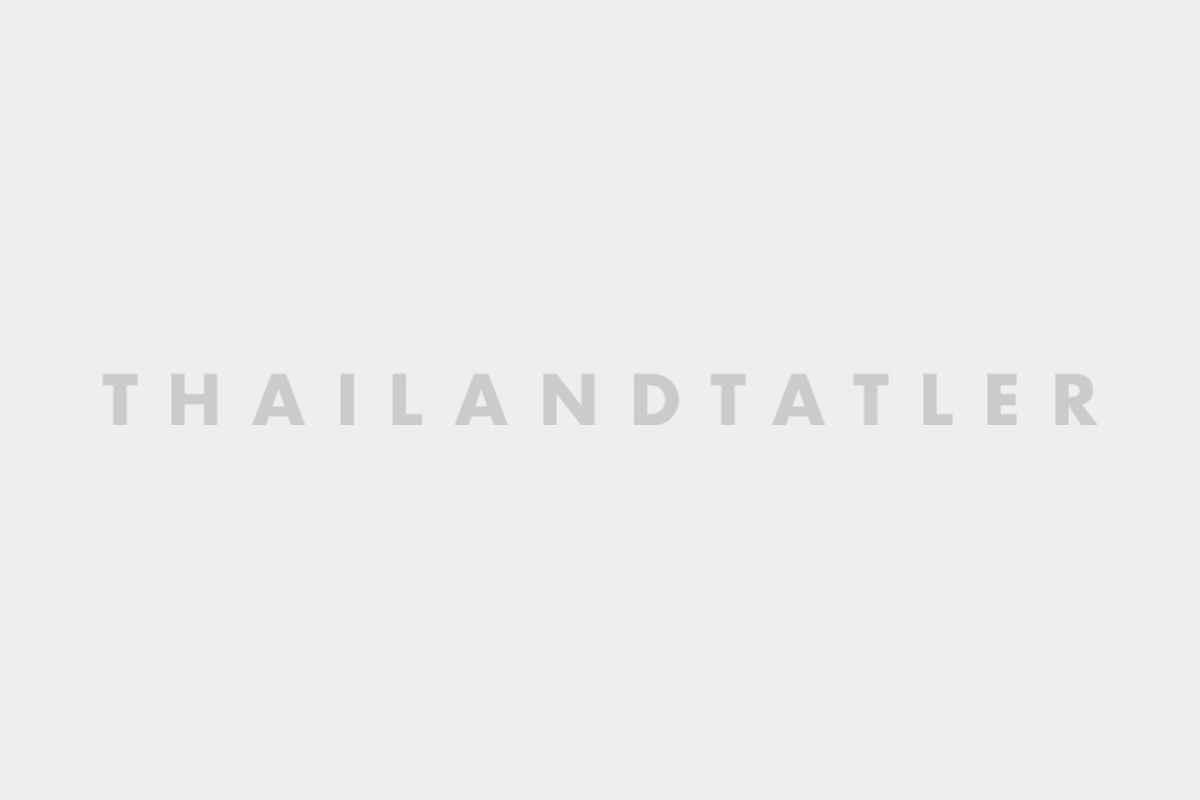 The marine richness of the Andaman being hauled in by fishermen
The marine richness of the Andaman being hauled in by fishermen
Sirachai Arunrugstichai is a marine biologist turned photojournalist who specialises in marine conservation stories. He laughs, “So, I have a very large and salty office. I roam around different oceans, hop between islands and travel diverse coastlines. My goal is to be at the right place at the right time to capture images that educate, that tell the stories of the seas.” Shin, as he is known, mainly photographs for the local edition of National Geographic and agencies related to conservation. He also undertakes freelance assignments from international eco-organisations. A busy man, he has witnessed first hand the damaging impact mankind has had on the world’s oceans.
“Overfishing is what concerns me most,” he says. “Over many years of collecting data in fish markets and diving the deep, the effects of overfishing have become very obvious to me. Some species have almost disappeared completely and the impact on large marine predators, particularly sharks, has become acute.” Whereas the outbreak of Covid-19 has given nature a foothold for recovery in many areas, Shin says that from personal observations it doesn’t appear to have had much effect far out at sea. “Sure there has been a smaller human footprint in coastal regions, which is good and has given rise to numerous reports of notable animal sightings—sea turtles nesting in new spots, huge herds of dugongs, the return of certain species to previously abandoned territories, even the recovery of fish stocks in inland waters,” he explains. “But the reported recovery of fish stocks cannot be completely attributed to Covid-19. Prior to the outbreak, the adjustment of fisheries rules to combat IUU (illegal, unreported and unregulated) fishing were beginning to have an impact. The slow-down caused by Covid-19 will help but in the long run we have to change our fishing practices to make an enduring difference.”
 Sirachai Arunrugstichai’s underwater shot of divers swimming with a whale shark
Sirachai Arunrugstichai’s underwater shot of divers swimming with a whale shark
Change in the way we approach issues involving nature is key for Shin, who believes there are two key components to this. “The first is behavioural change. The focus in mainstream conversation is on changing our individual behaviour to reduce a harmful footprint,” he says citing waste generation, energy consumption and the adoption of environmentally responsible products as examples. “The other crucial component is policymaking and implementation. We need lawmakers to embrace and promote strong policies that balance economic needs with a systematic, long-term commitment to conservation.”
The shifting of Thailand’s fisheries towards more sustainable practices is a starting point, Shin adds. “Instead of trawling in whatever they can regardless of size and species, which is severely destructive to the marine environment and very wasteful, policymakers could provide more incentives to shift our nation’s fisheries away from that mindset—subsidise them not to fish in a certain way if you like and get them to switch to eco-friendly line methods and abandon nets. That would allow for the long-term recovery of marine resources.”
Related: Truths And Myths Of Sustainability
 Sirachai photograhs a sperm whale necropsy
Sirachai photograhs a sperm whale necropsy
“Nature is fighting back, it’s quite true and we have evidence,” declares assistant professor Thon Thamrongnawasawat, deputy dean at the faculty of fisheries at Kasetsart University. “Places that were formerly full of tourists, like Koh Samui, had very rare chances of sea turtles coming onto the beach to lay their eggs. But after the three-month lockdown there were 14 nests with reports of more turtles coming onto the beach,” he smiles. “Nine of the nests have already hatched. That’s around 470 more juvenile turtles at sea. This hasn’t happened in over 10 years. Dugongs are also appearing in numbers not seen in years and are coming in very close proximity to Koh Samet and the Trang coastline. And the sharks are back as well,” says the beaming activist.
Thailand’s leading marine expert goes on to explain that all the areas that have reports of wildlife returning are areas that were formally documented as habitats of endangered underwater animals 20 or 30 years ago. “So,” he laughs, “during lockdown they have come back to see their old homes again.” Of the two main issues causing the animals to avoid these areas—beach tourism and speedboat activity—it is the latter that causes most concern. In popular tourist sites such as the Phi Phi islands, Phuket and Koh Samet there are thousands of speedboats waiting to cater to visitors. “No wildlife will come close. They are afraid of the noise. But when noisy sea traffic and humans are absent, the animals quickly come back,” Thon says, referring to an effect some leading scientists are calling the anthropause—the temporary slowdown in human activity, particularly travel.
 Thon Thamrongnawa-sawat displays plastic debris from the sea
Thon Thamrongnawa-sawat displays plastic debris from the sea
With the lockdown easing, efforts are being made to ensure that the returned wildlife is here to stay. “If we reduce speedboat activity and access on a few beaches at particular times, such as during turtle nesting seasons, I am confident we can get them—and dugongs—established as permanent visitors.” The conservationist thinks that the Covid-19 pandemic offers a big chance to protect marine animals but more than that, the opportunity for the key stakeholder—the local community—to be directly involved with rescue and preservation efforts. According to the professor, locals used to rely primarily on rangers and park officials to take care of any wildlife encounters. However, during lockdown they have to do everything themselves—from building cages to protect nests to counting turtle eggs and more. “The activity becomes very personal. And this is a big step because you cannot simply ask people to protect nature through meetings or running fundraising campaigns. A practical appreciation is needed and now the local people have it,” Thon says, adding that the communities are keen to implement tougher rules and regulations regarding waste and beach activity when visitors do return.
See also: Herd of Dugong Spotted Off the Coast of Thailand’s Ko Libong
A member of several prominent national committees, the scientist believes the pandemic has provided an opportunity to refocus tourism so that locals are the bigger shareholders. “The emphasis should be on reducing mass tourism and encouraging eco-friendly, sustainable, private tourism. That way nature and the people who live with it and need it most win.”
 Undisturbed corals in the south
Undisturbed corals in the south  Sharks swimming off the coast of the Phi Phi islands
Sharks swimming off the coast of the Phi Phi islands
Dutch national Edwin Wiek has been fighting animal rights causes in Thailand since 1989, particularly the illegal wildlife trade and the plight of animals used in tourism. He started the Wildlife Friends Foundation 20 years ago to rescue abandoned animals that were kept as pets. Today the Ta Yang, Phetchaburi-based foundation is home to almost 800 animals including 25 elephants, 30 bears and over 400 primates encompassing monkeys, gibbons, orangutans and chimpanzees. “Those that can be rehabilitated are returned to the wild. Sadly many can never be released because they are not species native to Thailand or because they are handicapped in some way or too habituated to humans. These we try to give a good life as close to nature as possible,” the activist explains.
 Edwin Wiek rescues abandoned animals
Edwin Wiek rescues abandoned animals
The foundation, which operates its own illegal wildlife investigations unit, runs a fully equipped animal surgery and hospital and even has its own ambulance to aid injured wildlife. For Wiek, the coronavirus pandemic has wrought a much-needed pause in both the illegal wildlife trade and animal rescue. “The use of animals in Thailand’s tourism industry is based solely on the idea that they entertain and thereby generate income,” he says, referencing elephant rides and the infamous practice at certain zoos of offering photo ops with drugged tigers and orangutans. “It’s as if we are so superior that we can do anything we want with these animals without regard for their right to exist naturally. The most concerning thought for me is the realisation that most of these animals were born in the wild before being forced into a cruel captivity of exploitation. It’s an easy barrier to cross but almost always irreversible.”
He goes on to say that the coronavirus is showing us just how thin those divides actually are. “Right now there is no tourism and no money to be made and you can see that many of these zoos will close down. So what’s going to happen to all the animals? They’re all going to need a new home. There is less money to buy food for them and many may simply be abandoned as a result. These animals will become the victims of the coronavirus in the longer term because when they cease to make money for their owners they become a liability and therefore expendable.”
 A small clawed otter rescued from hostile dogs at Koh Samui
A small clawed otter rescued from hostile dogs at Koh Samui  A Wildlife Friends staff member treats an injured owl
A Wildlife Friends staff member treats an injured owl
It is a similar story with the use of elephants in Thailand’s tourism industry according to Wiek. “There are around 3,000 elephants in the business and currently they don’t have the means to support themselves. They need to eat and the people who keep them also need the income for their families.” The Covid-19 break has been tough on them all but fortunately, support from both the public and private sectors has provided much-needed food and other assistance to the tourist-deprived elephants. “To break the cycle we need to find alternative sources of income in all these cases,” says Wiek who adds that the impact of mass tourism on animal welfare is one thing but the impact on natural resources and the environment is even worse. “The amount of garbage produced per day by millions of visitors alone is just impossible to get rid of. We need better quality tourists who spend more money and travel in fewer numbers.”
Related: 5 Ethical Animal Experiences Around The World
 Max the common marmoset was rescued by the Wildlife Friends Foundation
Max the common marmoset was rescued by the Wildlife Friends Foundation
It isn’t just flora and fauna that has been given the chance to rebound during lockdown. Although the hotel industry has been severely impacted by the Covid-19 outbreak, according to Marisa Sukosol Nunbhakdi, vice president of the Thai Hotels Association and chair of its environmental committee, it has presented an opportunity for properties here to fully embrace new standards in sustainability and business practices, if they haven’t already done so.
 Marisa Sukosol Nunbhakdi is in charge of the Thai Hotels Association’s environmental committee
Marisa Sukosol Nunbhakdi is in charge of the Thai Hotels Association’s environmental committee
With the easing of the lockdown in recent weeks, hotels across the nation are starting to open their doors to what is generally being referring to as the new normal’ For Marisa, who is also executive vice president of her family’s Sukosol Hotels group, it has meant a busy period of consultation and negotiation. “The main duty of the Thai Hotels Association is to represent our 970 member properties across the country. Through the association we try to advocate for sustainable development of Thai outlets, meaning we push for sensible industry legislation and governance, sustainability and training programmes,” she says.
She points out that issues of sustainability have been common in the hotel industry for years now. “Long before Covid-19 it was an industry-wide thing and most of the chains already have sustainability programmes. There is also the Green Leaf Foundation, which has been organising sustainable development within the industry since 1998. The sectors that actually pushed for green certification are the corporate multinational and MICE sectors,” Marisa further explains. “What’s happening now is that with multinational companies choosing green hotels, travel agencies are also becoming green. So sustainability is already happening. There’s a demand and it will only increase.”
So just how has the paradigm shifted for hotels since the arrival of Covid-19? “What has changed is the key issue of hygiene and safety. Customers want that of course, but it must be sustainable. I believe that in the future, as hotels aim to regain the trust of consumers, eco-labelling will be even more important. Being green makes good business sense as well because if done right it should help reduce costs in the long run.” She acknowledges, however, that going lean and green can require investment. “Contactless technology, mobile check-in, cardless systems… all these things reduce touchpoints but they don’t come cheap.”
 The Siam is among the hotels trying to reduce food waste
The Siam is among the hotels trying to reduce food waste
Another issue for Marisa and the Thai Hotels Association going forward is food waste. “The association has drafted food waste reduction guidelines for hotels, but there are challenges. We need everyone to opt-in and adhere to specific standards, which can mean massive changes even for big hotel groups. There is a lot of statistics and record-keeping involved and it requires a lot of work, but I believe it is necessary and should become standard industry practice.” As for improvements to the environment, Marisa says education, particularly at a local level, is key. “What goes on at the municipal and provincial levels is important because you can’t have a green system without green roots. I think Covid has been a wake-up call for the sector because our fight with nature has been ruinous for everyone. It’s a stark reminder that we need to re-imagine tourism,” she says. She too is of the belief that the days of mass tourism will wane and that a more personal, eco-aware or ethical form of experiential travel will emerge. “Moving forward, we must operate in a way that protects the environment and dependent communities so as to build trust with an increasingly savvy and demanding consumer.”
 The Sukosol hotel group’s Siam Bayshore resort in Pattaya has its own composting facility
The Sukosol hotel group’s Siam Bayshore resort in Pattaya has its own composting facility  The Wave Hotel and its pristine beachfront
The Wave Hotel and its pristine beachfront
Related: COVID-19: A Wake-Up Call On The Wildlife Trade







